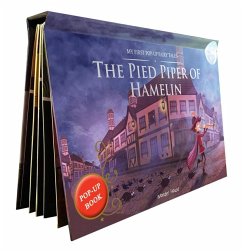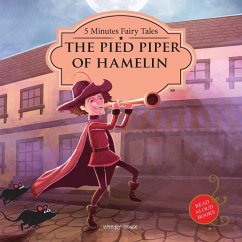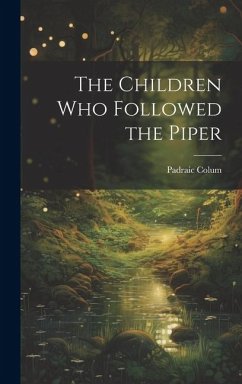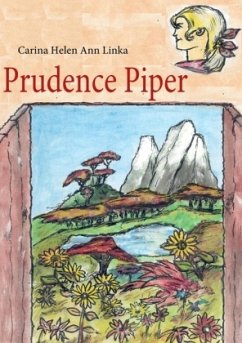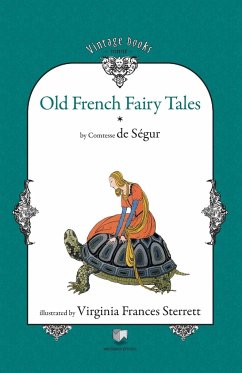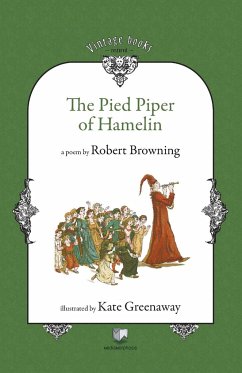
The Pied Piper of Hamelin
Versandkostenfrei!
Versandfertig in 1-2 Wochen
16,99 €
inkl. MwSt.

PAYBACK Punkte
8 °P sammeln!
Based on a bizarre legend from the 13th century, Robert Browning's poem from 1842 basically deals with how we might lose our future when we forget our past promises. A good and frightening lesson about children and parents for... children and parents. The sorrow message of the poem is somehow curbed by Kate Greenaway's delicate and abundant illustrations that are turning this book into some sort of a graphic verse-novel. This color edition is part of the "Vintage books restored" collection.





